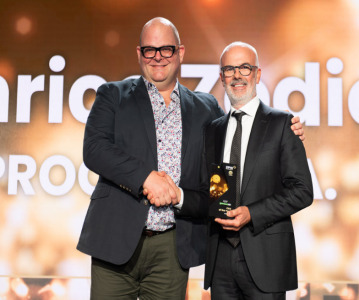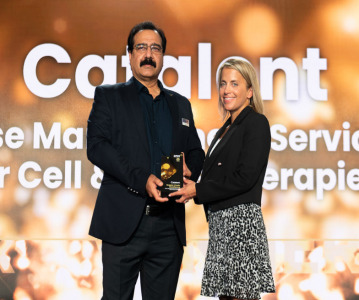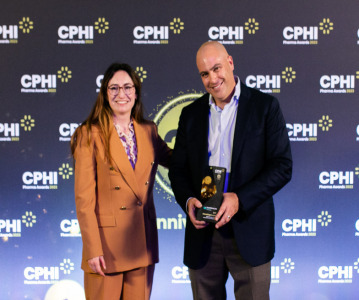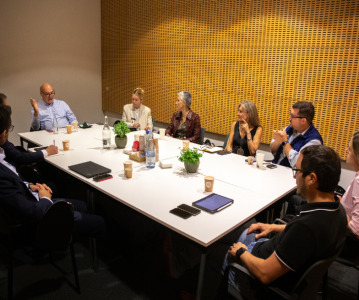CPHI Barcelona 2023: Tackling the Pharma Talent Precipice – Part 2
.png)
This year at CPHI Barcelona (24–26 October, 2023) we sat down with C-suite executives and HR professionals to discuss the looming talent crisis in the pharmaceutical industry. With hybrid working persisting post-pandemic and a growing skills gap, how can the pharmaceutical supply chain adjust to a changing labour force?
Thank you to our experts!
Markus Sieger, CEO, PolPharma Group
J.D. Mowery, President and CEO, KBI Biopharma
Leon Wyszkowski, President, Analytical Services, Clinical Research, Thermo Fisher Scientific
This article was conducted in partnership with Neil Kelly, CEO & Founder of Talent Sandbox and Vector Partners:
"Expert Talent Overview - Thank you for Informa and Vivian for the great partnership on this series of interviews on talent in the CDMO market. Our mission as Vector is to drive a better quality of conversation with senior leaders within the CDMO market. With the evidence based on these interviews, we have some highly engaged business leaders, vested to leave the industry in a better shape than they found it. Although we are still missing some key strategic direction for a broader market wide solutions to solve some of the systemic talent gaps that we continue to see. We look forward to continue driving this conversation into the next year around talent, with this series demonstrating that appetite for solutions and collaboration."
- Neil Kelly
In your role, how do you currently prioritise talent as one of your strategic objectives? Has the focus shifted or evolved over recent years?
Sieger: We have our strategic pillars, and one of them is focused on talent and the culture of the company. In countries like Poland and Kazakhstan, we’re a market-leading company – we're somewhat responsible for creating the market and developing talents. Therefore, both in generics (as I call them affordable medicines) and also for biosimilars in Poland through our sister company Polpharma Biologics, we have strongly contributed to the creation of the biotech industry. We have about 1000 people just in the biologics side of the business, and 4200 on the generics side just in Poland. So the overall talent question is a very important one for us, both from an acquisition perspective and a development perspective.
Mowery: I’m fairly new to the role – I started on the first of April – but being in the CDMO space, we’re not selling a final product ourselves. We’re selling a service. The people and the talent, whether it’s the technical acumen or their skill set, these relationships are how we accomplish everything that we do. Being on the innovator side as well as the CMO side of things, that’s something that I’ve always prided myself on; how to take talent and teach people how much they can accomplish through those relationships. It’s always been a high priority.
Wyszkowski: In general, we’ve always had a focus on talent. It’s a really big part of what we do. A lot of the differentiation that we drive is based on the people. Part of our company is focused on providing CDMO services to our customers. When we think about services, they’re delivered by people. In that aspect, talent strategies are very important. The evolution of that strategy has had an increase in intensity in the last 5–7 years and part of that is due to the growth of the industry across the board. There’s a lot of competition to fill the roles created in order to sustain this growth.
Consequently, there’s also an increase in competition across innovators, biotechs, new companies, new capacity and the amount of investments etc. All of these create pressures on the talent that we count on to execute.
What is the one skill or competence, that you most value as a business leader?
Sieger: For managers, it’s about the passion, respect, and understanding of their teams. When I see people for interviews, they’ve already been vetted two or three times. When it comes to me, it’s about understanding their motivations and people skills, so people who truly understand people working together. It’s easy to judge a person on technical skills but when I talk about managers and talent in our organisation, I emphasise people working and achieving together with the different skills and talents we all have. You can have the most technically skilled person, but of this person is not part of the team, is not sharing, creating and wanting to achieve goals together, the person is most likely not in the right place.
Mowery: Work ethic is huge for me, in addition to trust and integrity. Finally, an appetite to learn.
With new technologies and the digitalisation of the pharmaceutical supply chain, it is estimated that in the next decade over 90,000 pharmaceutical jobs will disappear and be replaced by up to 120,000 new roles, with a growing skills gap. How is your board looking to address this? Do you see a broader role for the pharmaceutical industry in tackling this together (if at all)?
Sieger: First of all, we work very closely with universities because that’s where you grow and find good talents. We also work very closely with more technical schools where we build up technicians. Our largest site has 6-month internships with classes of 40 students working in our organisation before going back to school. There’s very much an exchange of knowledge and experience, and many students choose to work for us later in their career. This investment in today’s schooling brings us the goodwill – they see our company and our values and choose to work with us. Secondly, we provide support for pharmaceutical scientists in post-doc studies, building an ecosystem of talent. We are also one of the largest organisers of medical events discussing new trends in applied medical science. Thirdly, we have internal talent development and training programs – this boomed during COVID, alongside our standard trainings in quality systems and so forth.
We also have demographic issues as everybody else – our company is more than 80 years old, so generational differences in expectations and ideas will impact their execution. At the end of the day, it’s considering all these elements together that will help address this gap. We’ve had mentorship programs implemented in the last 2–3 years on the technician side of things, fostering young talent to share technical knowledge. On the other hand, we also want to motivate younger generations to help older generations of employees with new technologies and ideas. It’s a good start, but we’re still working on it. For example, we’re working to push digitalisation in many ways – AI, digital twins, IoT in industrial setting, Large Language Models such as ChatGPT etc. This comes with its own issues such as cybersecurity but these are all activities that require their own set of skills. Though it’s a learning process and we’re prototyping more and more in our organisation, there’s a large openness to these new ideas among our teams
Mowery: I do think there’s a common language amount different CMOs and the pharma companies that we are willing to work and collaborate with. We’re in the process of negotiating a synergy with another CDMO as well that would allow us to have an opportunity to provide additional offerings that we don’t currently have today. I think that mindset is something you’re going to see more of, both because of the change in technologies but also just the limited capital in the way the economy has shifted. It doesn’t make sense to start a brand-new company when they can sign an agreement and partner with us to do it.
The other piece of this is that we have a strong platform called Digital One that focuses on things like machine learning and artificial intelligence. We want to be at the forefront of that. In this industry, you have a lot of customer coming in and trying to drive down the cost of goods and one of the ways to do that is through automation. It helps to make sure that you’re right the first time around about success rates and things like that are made stronger with automation. But it’s going to take a person to run that bioreactor and you will need people to learn those automation skills to be able to do those types of jobs.
Wyszkowski: How we think about it as a leadership team across various parts of the company is that it doesn’t necessarily matter much in terms of what we do in each of the businesses we all represent – we're all dealing with this talent gap. The strategy always has three pillars. You can grow, you can borrow, and the last piece is you either buy or steal. The one that’s incredibly important to us is growth. That is, the ability to attract talent and keep the talent in the organisation.
How you do this in an organisation is whether people feel like you’re investing in their careers, and that you’re developing the skill sets that they need to succeed. An example in the CDMO space is that we as a company have a sterile fill-finish plant in North Carolina. In the last 3–4 years we created a training centre there called Sterile University. We’ve had customers doing audits asking if they can put their employees through this training centre. So, a little bit of collaboration in the industry has given our employees a skill system seen on the production floor. We’ve also created a quality development programme to not only focus on the creation and running of operations but also the training and evolution of quality professionals in order for them to be able to make the right decisions.
I’m part of that story – I've been in the company for 18 years, starting from running a small plant in Bristol Pennsylvania to becoming group commercial leader and a division president in the company. In those 18 years, I feel like the company has invested in me. I didn’t just have the leadership skills but I also had the opportunities to continue to advance, and companies need to provide that. About 40% of our leadership roles are actually filled internally.
The other piece of the strategy is borrowing. With more than 120,000 employees globally in various divisions, you want to be able to borrow talent from other parts of the company. This is one of our strategies in terms of how we integrate businesses. We acquired Patheon and I was part of the team that came in because I ran the division that became a part of this CDMO group. The strategy is based on integrating businesses and cross-pollinating talent, creating development opportunities.
External attraction of talent is about getting individuals to see the stories of our company. How do we get them to come in and choose us over all the other choices they have in terms of their employment and encourage them? Part of that is sharing with them our Mission, which is quite powerful, of enabling our customers to make the world healthier, cleaner, and safer.
Since skills development and recruitment often work hand-in-hand, what are some key learnings when managing a Global workforce?
Sieger: There’s two elements I would like to highlight: in the industrial area, which is a key area for us (we have seven factories in different countries), we invest heavily in both technology and skills. In very large factories, you’re seeing a massive reduction of a large part of the workforce through automation. We don’t really see that in our setup as we produce a lot of small batches for different countries.
I don’t think we will see a huge reduction in the skilled workforce – sure, we’ll have automation and robots but that’s not a skilled job it is replacing. I think it’s actually the opposite. We have commercial teams with advanced systems of communication with our clients, whether they are doctors or pharmacists. AI will possibly bring a very extensive hybrid model of communication with all healthcare professionals we work with. At the end we need to help them to absorb the information supplied to them, which is obviously has to be useful to create value for the end-user. So going in with new tools to make patients more compliant and give information that doctors can use is going to be very helpful, creating totally different kinds of interactions and integral skills for your employees.
Mowery: I’ve actually been quite successful doing this throughout my career – it's really important to look for transferrable skills. We’ve had a lot of great experiences of people moving out of the hospitality and food industries, including bartenders and waitstaff, moving into the biotech space because they’re great at keeping track of and delivering against KPIs. So converting people like that to the manufacturing space is one method. Additionally, helping people transition out of the chemical industry into the biotech and pharma industries helps to find those of the right character and transferrable technical skills. When you look for these people, in most cases for CDMOs, the role will be so specialised from a technical perspective that they will have to learn on the job anyway. It’s really hard to find somebody that knows exactly how to do what you’re doing, so you need to look for the right character at the right skill level to then teach them what you need them to do.
Wyszkowski: Our company does a lot to have an academic–industry collaboration. With talent strategy, the execution is local. We have internships where individuals training in certain university degrees go through our operations as part of their degree. We also have a great Graduate and Development Leadership Programme where individuals that come in with different types of skills go on rotation with three assignments across 2 years, getting to see different parts of the company. Although we’re not perfect, I think we are getting better at involving those who may not have a pharmaceutical background. This talent gap has made us more open minded to where skill adjacencies can come in.
For example, we just hired our HR business partner for the commercial team in our CDMO business – they come from Boeing. It might not be obvious, but when you think about it, the two companies share a focus on safety. We’re trying to get medications to patients. They come from an industry building engines for planes. It’s not pharmaceuticals but it’s regulated. The key to being able to draw talent is also a focus on a culture of diversity and inclusion. When I think about diversity, it’s about bringing people into your team that are diverse in terms of their experiences. The inclusion part of the equation is if you have set up an environment that is inclusive where those thoughts and experiences are heard and part of our decision-making as a company.
With Pharma sites sitting in increasingly remote locations to keep costs down or for legacy reasons, how do you see the talent landscape evolving and how will this impact talent mobility?
Sieger: I think there’s two dimensions to this. For talents within the organisation, we are moving them inside of the organisations to learn and grow. Also, we can develop teams in a virtual way by exposing them to group wide issues, thus learning from each other.
Depending on the area you see hubs, which have evolved in Europe, such as for Biotech around Munich. In our area we see less hubs but obviously employees do move between companies.
At the end of the day though, it’s about company culture. We must live up to our values everyday, be roles models as managers, and invest the right time and resources in building and supporting our employees. I am carefully reviewing statistics on exit interviews to understand the reasons people leave our companies.
Mowery: COVID changed everything. The mindset around what you can and can’t do remotely is very different than what it was before. When I look at the skill set of a project manager, they were used to sitting in the same facility with a team that they were running. Now that they’re remote, they don’t have the ability to go walk and have a conversation and say “Hey I need this from you.” It’s very different now. You have to schedule multiple meetings so time management has become extremely important. But I do think, from a real estate perspective and because of the cost of a labour force, that’s the reason we’re seeing new hubs pop up. Philadelphia is a prime example. San Diego is getting bigger too. Some of this is because people want to get away from areas with high costs of living and people are doing these assessments around what the labour force cost is.
Wyszkowski: There have been a lot of discussions around how remote we have now become because of the pandemic. I think there has to be a balance. Everybody is still working out what the right balance of office-working and remote-working is. For a CDMO, there are always going to be people that are needed at the plant to deliver the services we provide. The level of collaboration, innovative growth, and our business formula of organic growth cannot be done through a screen. You need to be able to collaborate with customers and with your internal colleagues. So, there’s definitely an emphasis to get people back together. But there is that reality of needing a balance. People want to be remote, and attracting more talent is provided by that little bit of flexibility. Our mission as a company is to enable our customers to make the world healthier, cleaner, and safer. It’s an incredible impactful mission. I don’t think you feel as drawn to it when you’re not at these plants or these labs doing the work required to deliver this Mission. The computer doesn’t create that ecosystem to deliver. While it’s not expected to bring a balance and greater access of talent with remote working, you can’t deliver that Mission if folks aren’t together working and collaborating.
What areas of the pharmaceutical supply chain will see the most movement of talent and why?
Sieger: I believe in the next 5–10 years, the whole industry will look completely different. Pharma is always a little bit late in its transformation because it’s highly regulated from the producers, wholesalers, pharmacies, and the operators. While we’re seeing things like e-pharmacies popping up, we need to ask questions such as who is advising patients in the right way (e.g. side effects, drug interactions), and what new service or technology help to improve the life of patients in this context. We see the uptake of e-commerce in pharma in specific countries, but regulations are different. I believe in a combined approach of telemedicine with mobile apps, e-commerce and monitoring devices (such as smartwatches, patches etc.) will create a sustainable improvement, which could, if we can prevent and diagnose faster, have a positive impact on the overall healthcare system. Affordable essential medicines play here an important role. Access to these with good compliance is key for effective management of health in both western markets and emerging ones.
Mowery: I think what you’re going to see is a shift towards highly potent molecules, personalised medicines like cell and gene therapies and ADCs – these are all coming to market in a much stronger fashion than they previously have been. What you’re going to start to see is batches being run at much smaller scales. There’s a lot of capacity being built, and I’m still sceptical around how that’s going to be used in multiple 20,000L reactors. But at the same time, we’re seeing protein expression yield much higher titres, so you end up running smaller batches. So I think the skill set people are learning in the cell and gene therapy space is actually going to be more transferrable.
One of the things, in my experience at a CDMO, is that we all struggle with the massive amount of data that’s collected. The data lake is huge. Getting that information transferred over to a customer in a meaningful way so that they can actually use it for regulatory filings is something that the CDMO spaces will have plenty of opportunities, if they haven’t already started leveraging them. I think we’re going to start seeing more of that as it wil be an expectation from customers.
Wyszkowski: I think that we’re already seeing this now in the movement of folks that manage supply chains. In the end, what we’re creating are supply chains that can deliver a product to the patient. Having individuals that can tie these processes together now that supply chains a more complex post-pandemic will be extremely important. It’s a challenge because project managers and supply chain managers are not only a crucial role but they have not had that level of focus for a few years now. We tend to focus on the science because that’s what our product comes from.
The other part of it is that we’re getting into some really new science. The biggest concern for biopharmaceutical organisations is testing and analytical assays needed to test for quality and safety standards on complex therapeutics. The analytical services business is one area that will see a large talent gap and movement of talent because the assays needed to provide analytical data on safety and quality are so complex. 80% of the data submitted for a drug to be approved is analytical information encompassing both patient samples from clinical trials as well as quality and stability data of the product itself.
To read more about talent acquisition and reskilling in the pharmaceutical industry, check out our Feature Article on recruitment and talent retention.
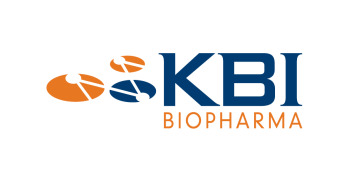


Related News
-
News CPHI Pharma Awards 2023 – Sustainability winners: Schneider Electric
After another year of impressive nominations for the CPHI Pharma Awards our winners were announced at CPHI Barcelona in October 2023. In this series of interviews, we speak to the people and teams behind the award-winning projects, concepts, and techno... -
News CPHI Pharma Awards 2023 – At the Heart of Pharma winners: Merck KGaA
After another year of impressive nominations for the CPHI Pharma Awards our winners were announced at CPHI Barcelona in October 2023. In this series of interviews, we speak to the people and teams behind the award-winning projects, concepts, and techno... -
News CPHI Pharma Awards 2023 – Packaging & Machinery Winner: Gasporox
After another year of impressive nominations for the CPHI Pharma Awards our winners were announced at CPHI Barcelona in October 2023. In this series of interviews, we speak to the people and teams behind the award-winning projects, concepts, and techno... -
News CPHI Pharma Awards 2023 – CEO of the Year Winner: Enrico Zodio, PROCOS S.P.A.
After another year of impressive nominations for the CPHI Pharma Awards our winners were announced at CPHI Barcelona in October 2023. In this series of interviews, we speak to the people and teams behind the award-winning projects, concepts, technologi... -
News CPHI Pharma Awards 2023 – Supply Chain Excellence Winners: Catalent Case Management Services
After another year of impressive nominations for the CPHI Pharma Awards our winners were announced at CPHI Barcelona in October. In this series of interviews, we speak to the people and teams behind the award-winning projects, concepts, and technologie... -
News CPHI Pharma Awards 2023 – API Development and Innovation Winners: Snapdragon Chemistry, a Cambrex Company
After another year of impressive nominations for the CPHI Pharma Awards our winners were announced at CPHI Barcelona in October. In this series of interviews, we speak to the teams behind the award-winning projects, concepts, and technologies. -
News Navigating the Future: Challenges and Opportunities in Pharma Innovation and Investment – CPHI Barcelona 2023 Roundtable Report
In this comprehensive downloadable report, hear from a range of experts in finance and investment in the pharma industry on what investment trends will be shaping the future of the industry, in Catalonia, and the wider world. -
News CPHI Barcelona 2023: Partnering for Success – Managing Outsourcing Relationships to Optimise Manufacturing Operations
During CPHI Barcelona 2023, insightful content sessions offered attendees the chance to explore trending topics with expert speakers and panellists. Here, we summarise what the pharma industry and supply chain are talking about the most.
Position your company at the heart of the global Pharma industry with a CPHI Online membership
-
Your products and solutions visible to thousands of visitors within the largest Pharma marketplace
-
Generate high-quality, engaged leads for your business, all year round
-
Promote your business as the industry’s thought-leader by hosting your reports, brochures and videos within your profile
-
Your company’s profile boosted at all participating CPHI events
-
An easy-to-use platform with a detailed dashboard showing your leads and performance
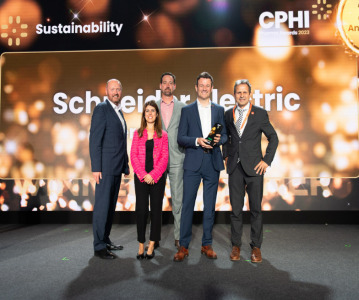
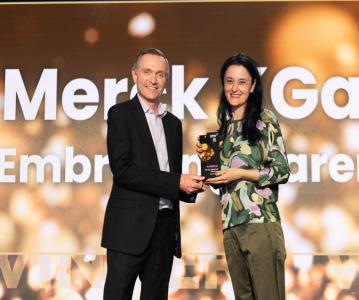
.png)
